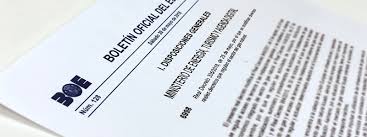
Spain Approves New Decree on Gambling Ads
Spain Council of Ministers on Tuesday approved the Royal Decree on Gambling Advertisement, which would restrict TV/radio/YouTube ads to a limited 1am-5am timeframe, abolish gambling sponsorship of sports bodies and limit operators providing discounts only to consumers who have already invested at least three deposits.
With existing football sponsorship agreements newly grandfathered until the end of the next season, the latest rules will take place on a phased framework. Established ad promotions involving celebrities or other prominent personalities can be continued until April 1, 2021, after which celebrity endorsements are no longer allowed.
Likewise, current online advertisement contracts with third-party portals will continue until May 1, 2021. After that, operators may only be able to advertise on their own gaming pages, while promos will also be sent out to social media followers if age-related filtering are utilized by those channels.
Operators who refuse to comply with the new regulations may face financial fines ranging from €100k to €1m, along with a revocation of their license for up to six months.
Minister for Consumer Affairs Alberto Garzon, who previously said that the latest regulations marked an end to the “law of the jungle”, took questions from the media after the decision by the council. Garzon echoed arguments that the new rules were required during the pandemic shutdown due to recent spikes in gambling advertisements, and that these ads “had more capacity to attract”.
Media investment significantly increased in 2019 but plunged during the second quarter of 2020, the same time in which Garzon's commercial statements were inevitable. In comparison, the highest spenders in 2019 remain the state-run selae and once lotteries which were shielded from the worst of the current marketing laws.
Garzon said on Tuesday that it would "not make sense" for online casino and betting companies to place the same commercial limits on state lotteries, because they are of a different type. Garzon said it was the country's gaming rules that made the lottery-friendly difference, not the order.
Garzon acknowledged that there are already hard evidence showing that Spain's issue gambling rates experienced a substantial increase after the pandemic lockout, but he continued to say that online gaming was “more attractiveness to participate” due in part to ads.
JDigital, the Spanish online gambling industry organization, continues to expect that Garzon's pet scheme will struggle to protect customers because it would drive users into the arms of non-spanish-licensed gaming platforms that are likely to operate on Spanish-speaking welcome incentive deals, secure in the knowledge that they are beyond Garzon's ability to prosecute.





